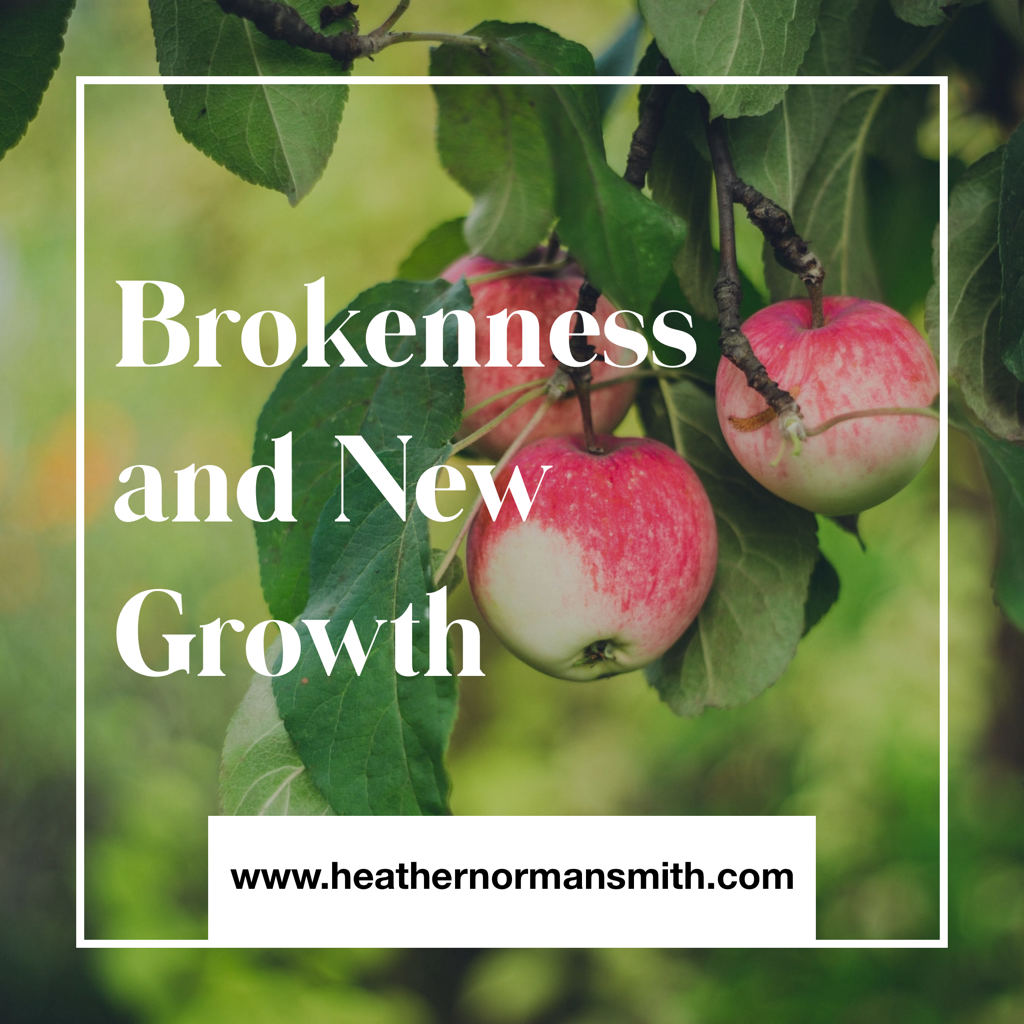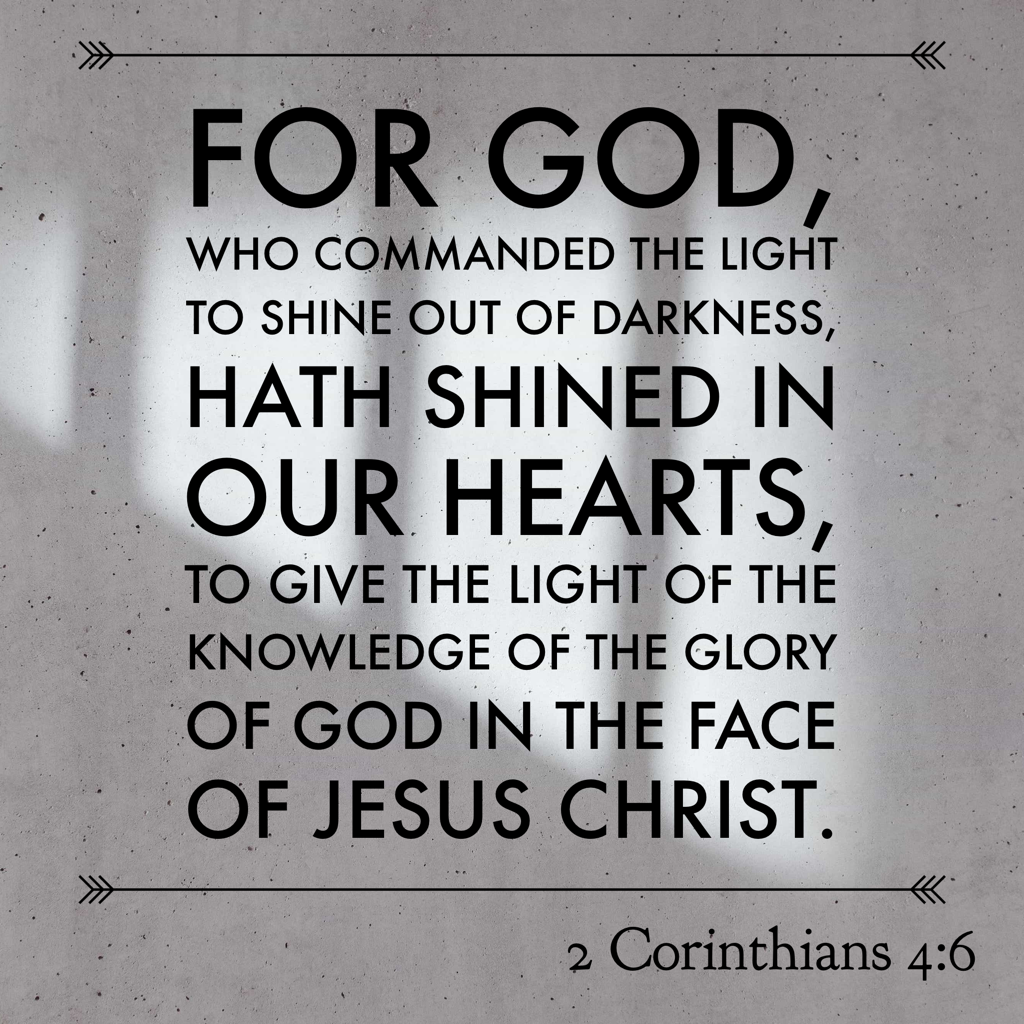|
The longer I live, the more awestruck I become at this truth: I have a personal relationship with God. It boggles the mind. The all-powerful Creator of the Universe not only knows my name, He cares specifically for me. Not just mankind. Me. And you, too. The Bible says, “Therefore humble yourselves under the mighty hand of God, that He may exalt you in due time, casting all your care upon Him, for He cares for you.” (1 Peter 5:6-7, NKJV) It’s baffling that human creatures, with all our sin, are able to have anything to do with God, but to think that He cares about us—our hopes, dreams, struggles, fears—is remarkable. Like the psalmist, we have to ask ourselves, “What is man that You are mindful of him?” (Psalm 8:4)
I read an article recently that compared Western and Eastern Christians. The premise of the article was that Christians in the West have a diminished view of God’s holiness because we approach Him casually, as a friend, while Eastern believers express more reverence in worshipping Him as their King. Obviously, God should be revered and respected. He is worthy of our highest praise, and we should honor Him as the King that He is. But I don’t think that precludes Him from being seen as our friend as well. Hebrews 4:16 says, “Let us therefore come boldly unto the throne of grace, that we may obtain mercy, and find grace to help in time of need.” Who can come boldly before the King’s throne except those closest to Him? Jesus told his disciples, ‘No longer do I call you servants, for the servant does not know what his master is doing; but I have called you friends, for all that I have heard from my Father I have made known to you.’ John 15:1 I’m thankful that He’s my King, and my friend. Is He yours?
0 Comments
A couple months ago, my son took the seeds from an apple he’d just finished, and, without my knowing, he stuck them in the dirt in a flowerpot in our kitchen. Soon, to my surprise, three little trees sprouted up amongst the flowers, and after a few weeks, I transferred them to a large container outside. The internet tell me that the seedlings have the potential to mature into fruit-bearing trees in about eight years, but interestingly, their product may not be the same variety as the apple from which the seeds were taken, because apple trees do not produce “true-to-seed.” That information led me to research grafting. In order to grow a specific variety of apple, horticulturists graft a branch (called the scion) from a tree of that variety, onto a cut branch of another planted apple tree (called the rootstock.) The previously separate trees merge together, and growth continues. How amazing! And it’s a beautiful picture of how God made us part of His family, allowing us, as Gentiles, to be joined to the rootstock of Abraham. (Read in Romans, chapter 11 about how we have been “grafted.”) But as I studied the grafting process, another spiritual application struck me. You see, before grafting can be accomplished, a tree must be violently injured. The sharp teeth of the saw grind back and forth through the wood until the branch is cut in two and the dismembered portion of the host tree falls to the ground. The woody flesh at the cut point is suddenly exposed. The tree appears irreparably damaged. Then the tree is further damaged as the gardener takes the grafting knife and cuts deep into the broken part. Maybe you feel like that tree. You’ve been hurt, cut off. A painful, dramatic change has occurred in your life, and you are a fraction of your former self. Things seem hopeless. But please remember that, like for the tree, growth is still possible. It’s not the end. Those places that are wounded can be restored with a new calling, a new relationship, a new perspective; and you will be fruitful, maybe even in a way that is superior to what the original “branch” could have produced. Just as many individuals are going through a kind of painful grafting process, I believe the church, and even our nation, are going through it as well. And while we may have to wait to see the results, we can trust God to bring healing to the broken parts. He will create something beautiful in time. “Behold, I will do a new thing; now it shall spring forth; shall ye not know it? I will even make a way in the wilderness, and rivers in the desert.” Isaiah 43:19 I get into my car on a ninety-degree day. The air is stifling. Beads of perspiration form on my forehead in seconds. The steering wheel scorches my hands. As I back down the driveway, it feels as if I’m being roasted alive. There’s no way I can survive those conditions for long. The heat is unbearable. Yet, I don't stop the car and jump out. I don't even roll down the window. Why? Because the first thing I did after I started the car, was turn on the air conditioner. I know it will cool me down soon enough. It only takes a moment to kick in. The discomfort is temporary, fleeting. It can't hurt me. Relief is coming. We’re living in troubled times. Many people are distressed and scared, and my heart breaks for those who are struggling to find peace right now. But if we stop to think about it, there’s nothing truly exceptional about this moment in history. There has always been trouble, since man’s fall. War, plagues, famine—it’s all part of the human experience. Yet God, in his mercy, grants healing and restoration over and over, in a beautiful cycle of compassionate sovereignty. We hurt, then there’s a reprieve. The fighting ends. The plagues leave. The food returns. History proves that our present trials, however big or small, are temporary. And even more so, our faith proves it. Faith tells me that God IS working things out for GOOD, even now. Whether I see the result or not, God’s plans for His children are good, and He has not abandoned us. And faith tells me, too, that we’ll have perfect peace in heaven with Him one day. Pain doesn't last forever. Whether in this life or the next, relief is coming. That’s how we endure trials--with faith that they are temporary. The Bible says, “Weeping may endure for a night, but joy comes in the morning.” (Psalm 30:5b) Hang on. Relief is coming. A woman when she is in travail hath sorrow, because her hour is come: but as soon as she is delivered of the child, she remembereth no more the anguish, for joy that a man is born into the world. John 16:21 For I reckon that the sufferings of this present time are not worthy to be compared with the glory which shall be revealed in us. Romans 8:18 There are two versions of Christmas; you probably know. There’s the holy celebration of the birth of the Christ child—the One who came to rescue mankind from eternal separation from God and thereby demonstrated God’s deep love for humanity—where we sing His praises and extol His goodness. Then there’s the Christmas where a decorated evergreen tree becomes the centerpiece of our homes, and we sing songs about reindeer, bake cookies shaped like little men, and stress about finding suitable gifts for everyone on our list. It’s the same date on the calendar, the same holiday in name, but two very different celebrations.
Throughout the years, I’ve struggled to reconcile the two Christmases, to keep them balanced. I tend to focus primarily on the birth of Jesus up until the Sunday before December 25th, depending on when Christmas falls. Our church play and the imagery of the nativity are always the spiritual highlight of the season. Then my mind and heart give way to the excitement of family gatherings, classic holiday movies on television, and seeing joy on my childrens’ faces on Christmas morning. But should there be a balance? Should we even entertain the things that would distract us from the manger? As I got ready for church yesterday morning, I contemplated the tug of war between the Christmases and was struck by an unusual comparison: Christmas time is like a wedding and a wedding reception. The vows and exchanging of rings at a wedding is holy, the sacred part which is often followed by a let-loose party. The reception, big or small, is the celebration of what has taken place, though it rarely resembles the ceremony. At a wedding reception, the guests focus on the emotion of the day, if not specifically the reason for the emotion. In that way, Christmas is like a wedding and reception—a blending of the sacred and the secular, where the latter depends on the former. All the warm and fuzzy feelings, the less-than-holy feelings of Christmas, find their roots in a singular emotion, created by and embodied in God Himself: Love. We have love because He came. And the joy of the season, even feelings that don’t directly relate to the Christ child—magic, wonder, coziness, generosity, anticipation—are because of Him. Every good gift comes from God. So maybe there is room for the fun of Frosty and Rudolph after all. Sticking to our analogy, let’s talk about the wedding crashers—unbelievers who celebrate the day set aside to honor Christ’s birth. Our Lord’s name is in the day, yet many who don’t claim Him still celebrate. It’s like not knowing the bride and groom but showing up for the party anyway. They’ll sing carols and bake cookies, string lights and give gifts, yet want nothing to do with the Christ of Christmas. But He came for them, too, whether they believe it or not. And while true joy can’t be found outside of a relationship with Him, a semblance of it exists in their singular version of Christmas, though they haven’t met the Source. Who knows? Maybe they’ll meet Him at the party. When Jingle Bells fades into O Holy Night on the radio, maybe they’ll be drawn to Bethlehem and closer to the truth. As I think on it more, a collision of the sacred and the secular at Christmas seems fitting, really, because that’s what happened when He was born. The Holy One took on human flesh. A perfect God broke the plane between Heaven and Earth. The Most High took up residence in a fallen world. That’s the reality of Christmas. So as you sing Jingle Bells, think of Him. As you think on the manger, thank Him for the presents under the tree. Our celebrations don’t have to be at odds when we are secure in His lordship in our lives The interviewer examines the candidate. Stained shirt and wrinkled pants. His hair is mussed and he hasn’t shaved. “Thank you for coming in today,” the interviewer says, smiling. The interviewee nods. “I’ve reviewed your resume, and I’m impressed with what I see.” The interviewer’s assistant chokes on his sip of coffee. “I think we’ll be able to offer you a very competitive salary,” the hiring manager continues. “The job comes with a corner office and benefits start on day one. Are you interested?” “Sir, what are you doing?” the assistant says. “He has no experience in our field. He has no experience of any kind! I’m not sure why you even brought him in.” “I’ve already said, I like his resume.” “But, sir, his resume is written in crayon. We haven’t done a background check. We know nothing about this person. And you want to give him a corner office?” The hiring manager slides the crumpled resume toward the assistant. “See here? He has an excellent reference. That’s why I’m hiring him. This person’s word is all I need to know that he belongs here.” “But our last candidate went to a top school and has twenty years of experience.” “That’s true," says the manager. "But he doesn’t have the same reference.” As Christians, we became children of God through no merit of our own. We were unworthy of being accepted, not qualified in any way to receive His grace. I’m still not worthy, but my advocate remains. Jesus’ name on my resume of faith makes all the difference. He vouched for me, called me worthy with his very life. It’s not a corner office, but I have something even better. I'm an unlikely candidate, but I have eternal life and fellowship with God, by the righteousness of my Lord. Rom 3:20-25 (ESV): For by works of the law no human being will be justified in his sight, since through the law comes knowledge of sin. But now the righteousness of God has been manifested apart from the law, although the Law and the Prophets bear witness to it--the righteousness of God through faith in Jesus Christ for all who believe. For there is no distinction: for all have sinned and fall short of the glory of God, and are justified by his grace as a gift, through the redemption that is in Christ Jesus, whom God put forward as a propitiation by his blood, to be received by faith. This was to show God’s righteousness, because in his divine forbearance he had passed over former sins. The television had been off for two days. Behavior issues called for drastic measures. But when the two youngest woke me up before daylight on a Saturday, I gave in. I was too tired to engage and keep them quiet enough to not wake the rest of the house. Not without the help of a little electronic intervention. Still, I set a standard. I would choose the program, and it had to at least be educational. The kids, just happy to have television back, didn't complain.
I started the show then shuffled to the kitchen to drop frozen waffles in the toaster. While they cooked, I stumbled around like a zombie, picking up random things that had been strewn about the night before. The boys were happily watching the PBS cartoon. I heard the teacher character tell the students how a microscope works. "Magnify means to makes things bigger," she said. Instantly, God cleared the sleepy fog from my brain and began to grow an idea in my spirit. "Magnify means to make things bigger." Magnify in Scripture means to praise. Psalm 35:3 says, "O magnify the LORD with me, and let us exalt his name together." But how might the common definition also apply? How can we magnify the Lord to make Him bigger? (The Greek word for magnify comes from the root megas, where we get the word mega.) God is already all-powerful, so there is nothing bigger than Him in that sense. But we need to continually make Him bigger in our lives, of greater importance. We need to give him a bigger space to operate through us, by eliminating worldly distractions. We need to use spiritual eyes to see Him as bigger. It doesn't take a microscope. It takes removing the blinders of the flesh to see Him for what He is. Let's look at three uses of the word magnify in Scripture that describe different ways in which God is magnified. Psalm 69:30 says, "I will praise the name of God with a song, and will magnify him with thanksgiving." Being thankful makes God bigger in our lives. When we stop to recognize every good thing as a gift from him, we see him as greater--not some distant force, but an up-close-and-personal sovereign who is worthy of worship. He is literally all-encompassing, acting on our behalf in every facet of our lives. Another well-known usage of the word comes from Mary, the mother of Jesus. Luke 1:46 (KJV) says, "And Mary said, My soul doth magnify the Lord." Mary said this in response to Elisabeth's proclamation in verse 45 (NKJV): "Blessed is she who believed, for there will be fulfillment of those things which were told her from the Lord.” We can magnify God by trusting Him and believing in His promises. Take Him at His word. Even when you can't see the end from the beginning, and even when the road set before you is difficult--as surely it was for Mary--believe He will fulfill His promise to be faithful. In another New Testament reference, when the Holy Spirit was poured out on a group of Gentiles, the Bible says, "For they heard them speak with tongues, and magnify God..." (Acts 10:46 KJV.) Yes, they were praising God, but they made God bigger in their lives by exercising spiritual gifts. They put His greatness on display by operating in the power of the Holy Spirit. It's interesting how all this study started with a line in a children's show, on a Saturday morning when I didn't want to be awake yet. It makes me wonder if the break we had from television for a couple of days helped prepare me to hear God better. Maybe my mind and spirit had a bigger space for Him to work. However it happened, I'm grateful for the message. I need God to be bigger in my life. I want to magnify Him through thankfulness, faith, and spiritual gifts. Maybe a microscope isn't the best metaphor. Sometimes what I need is to view God like a word on a screen, with the web browser zoomed to 1,000%, and everything else pushed out of view except Him. (That's as high as the zoom will go; I tried.) That's what we all need sometimes. May God be made bigger in our lives today. "O magnify the LORD with me, and let us exalt his name together." (Psalm 35:3 KJV)  The bright late-May sunshine fell on my face, luxuriously warm. I closed my eyes and let my skin soak up it's energy as the corners of my mouth automatically drew upward in delight. It's rays reinvigorated my weary soul. But it was only for a second. The sun kissed me for a literal second, then it was gone. Back again. Gone again. Back again. Gone again. Over and over. The swing on the back deck of my house was in just the right spot for me to experience the sunshine on the way up, but the backswing put me in the shadow of the house. I wanted to enjoy the sun, but I was tired, and the obvious solution didn't seem worth the energy- MOVE THE SWING! It's light-weight and slides easily, but I didn't do it. How often does this happen in my spiritual life? I go back and forth between experiencing THE LIGHT and slipping into the shadows. I love the benefits of spending time with God but I don't always make the effort. To be clear, as a child of God, He's always with me. But, because of MY actions, I'm not always basking in the fullness of relationship with him. And the solution for that is as simple as moving the swing. I need to move myself to do the things that I KNOW promote fellowship with God- spending more time in prayer and reading the Word. We should aim not to only experience His presence at church or when we need something from Him. It should be where we live! Psalm 140:13 says: "Surely the righteous shall give thanks unto thy name: the upright shall dwell in thy presence." What are you waiting for? Take a step out of the shadows today. Let's move to where the Light is. All day long, I talk to people. I share posts on social media, and I comment on other’s people’s posts. As a society, we’re accustomed to constant human interaction, and I enjoy the convenience and connection that technology allows. But sometimes I imagine what it would be like if it all went away—if social media ceased to exist, if phones were unavailable. I’d dearly miss my online companions, and it would take a long time to adjust, but I would still have my church, my family, and Jesus.
But, God forbid, what if my church family dissolved? What if that fellowship was no longer available to me? I would certainly grieve. But I’d still have my family and Jesus. Though I can barely stand to consider it, what if family weren’t with me? What if I was taken to a far off place, away from everything and everyone I know and love. How horrible! But my soul rests in the fact that I’d still have Jesus. But what if Jesus….? There are no more what ifs. Jesus is the only thing in my existence that can’t be removed from me, the only thing that is inextricable from my being. While the other situations are, thank God, improbable, losing Jesus is simply impossible. What an awesome thought—I have something that can never be taken away. As a believer, I have the Spirit of the Living God with me at all times, and He will always be a constant and abiding presence, regardless of any other circumstance in my life. Psalm 139:7-10 says, “Where shall I go from your Spirit? Or where shall I flee from your presence? If I ascend to heaven, you are there! If I make my bed in Sheol, you are there! If I take the wings of the morning and dwell in the uttermost parts of the sea, even there your hand shall lead me, and your right hand shall hold me.” Imagine your surroundings as a silent void, an abyss of nothingness. Even in that place, God is there. And in nothingness, you have abundance as a child of God. There is no fission process that can separate Him from you. No matter where you are, He is there. He will always be there. And He is sufficient. The woman’s pretentious words set my blood to boilin’, as the saying goes. In a closed Facebook group, related to Christian writing and publishing, this person’s responses on a particular thread were haughty and, by my interpretation, hateful. I stopped to examine my emotions. I’d been under a lot of stress. Maybe I was just overly sensitive. Everyone else dealt with her patiently, and with grace. They answered each arrogant retort with gentle, loving dialogue, while I wanted to (politely) call her out.
I stepped away from the thread and went on scrolling through Facebook, still fuming. Then I came across a meme posted by author Robin Lee Hatcher. It said, “Sometimes the best thing to say or do is nothing.” Well, there was my sign. I needed to stay quiet about the matter. Still, it ate away at me. I went back and read the thread again. It had only gotten worse. This person tried to shut people down like her opinion was the only one in the world that mattered, and I wanted so badly to jump in and (with love) tell her she was being a jerk. Sometimes, it’s okay to do that. But in this case, I just didn’t feel that liberty. So I continued to fight the urge, and I jumped over to Twitter instead. I scrolled through GIFs and quotes, still seeing red. Then I saw a post from my writer friend, Rachel Schmoyer. She’s studying and teaching the book of Proverbs and had shared this: “Whoever belittles his neighbor lacks sense, but a man of understanding remains silent.” (Proverbs 11:12, ESV) Remains silent. There it was again. I had no other choice but to let it go. I wouldn’t even revisit the thread, so I wouldn’t be tempted to speak out. The next day, I had another irritating encounter online. I had my feelings hurt through a message with a friend. I’m still not sure if it's because I’ve been overly sensitive lately. Proverbs 15:18 says, “A wrathful man stirreth up strife: but he that is slow to anger appeaseth strife.” I think I'm normally slow to anger, but in some seasons and situations, it’s harder to be that way. I managed to keep calm with my friend, but my first instinct was to call someone else to vent. Before I dialed, I thought of Philippians 4:8: “Finally, brethren, whatsoever things are true, whatsoever things are honest, whatsoever things are just, whatsoever things are pure, whatsoever things are lovely, whatsoever things are of good report; if there be any virtue, and if there be any praise, think on these things.” Even if what I was going to say was true and honest, it surely wasn’t of “good report” or “virtue”. It wasn’t praiseworthy. So, I knew I needed to be quiet. Still, I wanted someone to validate my feelings of anger. I needed to tell someone that I had been wronged. But back to Facebook I went for a mindless distraction, and as I scrolled, I came across a post that was simply one word and two numbers. It read, “Philippians 4:8.” Wow. Needless to say, I didn't make that phone call. Three times in two days, something on social media gave me pause. Three times, I received spiritual guidance from Facebook or Twitter. So does God really speak through social media? Does he really care that much for me, to guide me so lovingly in the right direction when I’m tempted? I believe so, but not just because I happened to find these posts. I spend way too much time on social media, so it’s probable, out of all the posts I read, that I’ll find ones that relate to my present situation. But I know God speaks to me on social media by the way those posts convicted me, the way they spoke to my spirit. John 10:27 says, “My sheep hear my voice, and I know them, and they follow me.” I'm thankful to be one of His. I'm thankful that I have friends who share the truth of Scripture online. And I'm thankful that God speaks in many ways. What unexpected way has God spoken to you lately? So many spiritual connections can be made while observing nature. This morning's thought came just from watching birds eat.
Over the past few years, I've developed a love and appreciation for birds. I think it's part of getting older- we start slowing down to really see things that have been right in front of us all along but were too busy to appreciate. I have a couple of feeders up, and I get a lot of joy just from watching the little birds come to eat. Today, I noticed how the different species feed differently from each other, and it made me think of the different ways believers consume spiritual food. The sparrow hung out there, taking its time. It pecked and ate leisurely, perched in the same spot for a long while. Some people spend time with God this way, setting aside time to soak up His presence and be fed in no hurry. The chickadees and nuthatches dart in and grab a bite, then quickly fly away. But they come back soon. Back and forth, they feed throughout the day. Spiritually, I find myself most like these birds. I spend time with God in short, frequent periods- a verse here and a prayer there, a song lifted up as I go about my day. Some of the birds seem to prefer to eat alone, while others come with a friend. The cardinals and the house finches usually come as a pair. And while Christians are instructed to assemble together regularly, some believers get the best spiritual food in their quiet time alone with God. Others thrive on corporate worship. No matter how you like to be fed, the most important thing is to eat. We may do it differently, but spending time with Jesus through worship, prayer, and reading the Bible is the spiritual food we all need. "For the bread of God is he which cometh down from heaven, and giveth life unto the world." John 6:33 |
About the BlogThank you for visiting my blog. I share devotional articles and musings about life, parenting, and the writing journey, as well as important news about my books. I hope you find something of interest here! Click below to sign up for my email newsletter, which includes links to my latest blog posts. Thank you!
Categories
All
Archives
August 2023
|













 RSS Feed
RSS Feed